February Feature: SLUMBERJACK
· Artist Features
One part tech wizard, one part magician, SLUMBERJACK never fails to leave us spellbound
Since their debut in 2014, Morgan Then and Fletcher Ehlers have been carving their path to stardom as SLUMBERJACK. With every record they release, a hefty amount of time is spent chiseling away at every minor auditory imperfection until the master is immaculate. Everything from sound design to theme and, if they are working with vocals, lyrics can take them months, even years, to reach a finalized state.
That being said, music doesn’t populate the entirety of their schedules. When free time is found, Fletcher is just like every other gamer in the PC gaming master race and loves everything tech-related. In Morgan’s case, he’s more of a magic-user; his interests lie in the art of misdirection and the execution of mind-bending performances from start to finish. Then, when work equals stress, both enjoy spending time in meditation.
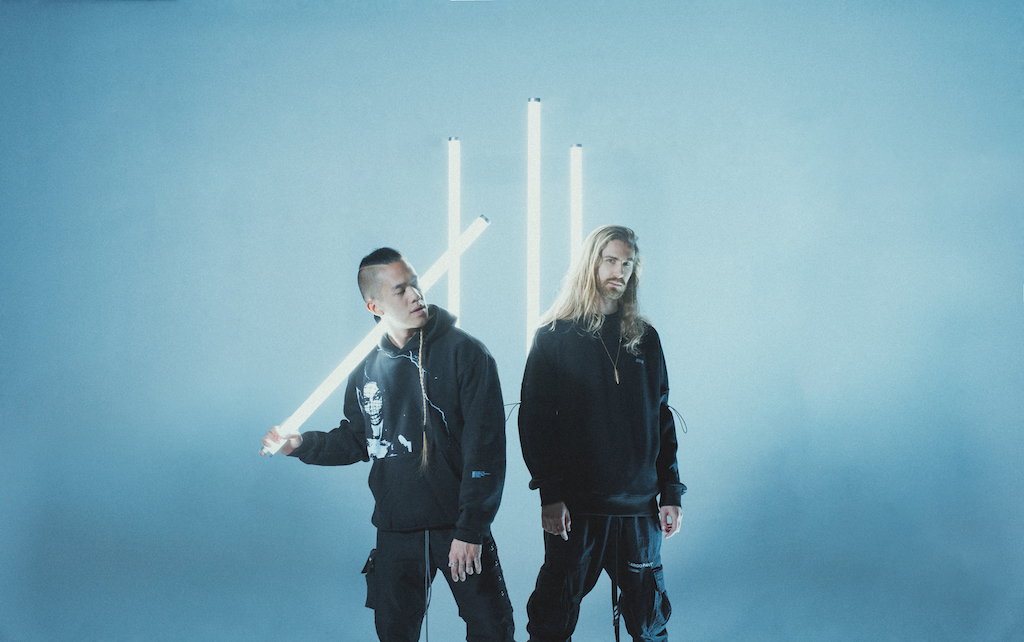
Last year, we got a taste of SLUMBERJACK’s attention to detail and sound design in their SARAWAK EP. Capturing the essence of sound-rich Malaysian rainforests and compounding the results into an EP was a monumental achievement for the Australian duo. Since then, we’ve been patiently waiting to see where their next project would whisk us off to. Now, with the release of Black & Blue, we have an answer.
We’re going from the jungles of Malaysia to the unruly underbelly of Los Angeles.
SLUMBERJACK caught us up to speed ahead of their big release of Black & Blue!
You were scheduled to perform alongside a number of other talented artists in Canberra, but the show was cancelled. How have the fires in Australia impacted your personal lives and your professional lives?
FLETCHER: We’re pretty lucky, I guess. We’re on the west coast of Australia. We haven’t really been affected too much, personally, on this side of the country, but obviously we’ve got friends and people we know who’ve had family members affected by the fires. I was speaking to someone the other day and their dad had to evacuate four times from his house. And then, in a professional sense as well, we had a show cancelled just on the weekend. A lot of our friends have. What So Not posted the other day, he’s had three out of six festivals he’s been playing cancelled because of the fires. It’s a pretty crazy time.
MORGAN: I think it’s hard to wrap our heads around the scale of the disaster – even for us! We’re in Australia right now! But yeah, what Fletch said, we’re on the west coast, so it’s really hard to see what the people on the east coast are going through. Although, there’s been reported a couple fires happening over on the west coast, but we’re in the city where it’s still pretty far from it.
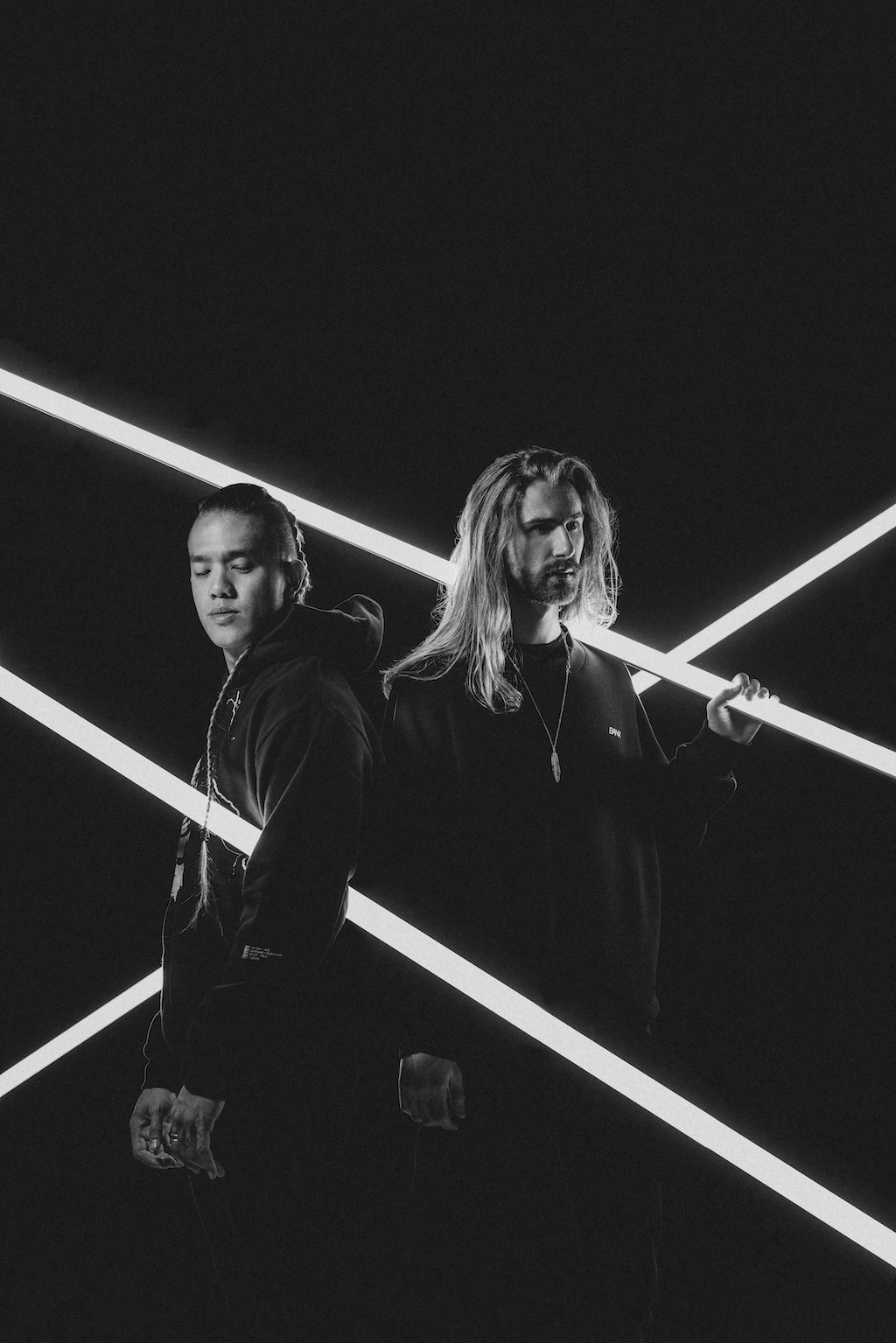
You guys are such good friends and yet so different! Tell me about some of the differences in your guys’ tastes (like food, music, hobbies, etc.)!
MORGAN: Fletcher likes anything computer-based. Right, Fletch?
FLETCHER: Yeah—food-wise, it’s very similar.
MORGAN: Very similar food-wise. What is different from us?
FLETCHER: I’m a bit more of a nerd, I think. I like playing computer games, video games.
MORGAN: I think I’m a different type of nerd. I like to define ‘nerd’ as someone who’s obsessive over one or a couple things. So Fletch is into coding, right? Gaming? I’m into magic, which is just as nerdy!
What does a typical day in the life look like for you when you’re not touring?
FLETCHER: When we’re back in Australia, I live really close to the beach, so I like to try and get down there at least every other day, or somewhere where I can see the water, just to chill out for a bit. We both meditate a ton… at least I meditate every day at least once.
MORGAN: I do some sort of yoga and work out at home if I can.
FLETCHER: But we obviously work on music as well. Head to the studio, try and get some creative stuff done. Get those creative juices flowing every day.
Let’s get into your creative process!
Learning how to do anything well is a pretty subjective process that varies from person to person. What are some of the things you needed to experience first-hand, when you were starting out, that you couldn’t get from something like a YouTube video?
MORGAN: I think it’s the idea of songwriting. You could easily learn sound design off YouTube, but it’s really difficult to understand songwriting, unless you have a conversation with the other person who’s collaborating with you.
FLETCHER: Yeah, I would agree with that. It’s very difficult to work out what makes a song good. It could sound great and it could be mixed really well, but it might still be not a good song. That’s the thing that you kind of just have to get out and get in the studio with a lot of people and a lot of music, and it just takes time to work that out I think.
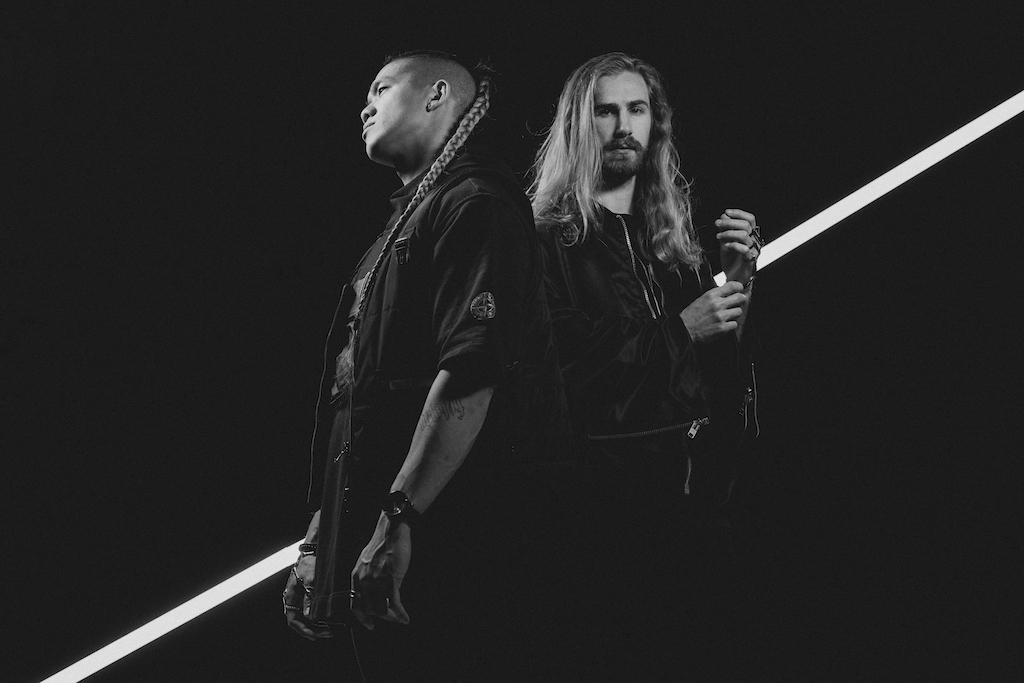
Do you tend to draw upon real personal experiences for inspiration, or more from the fantastic (like mythology for “Athena,” “Hades,” “Horus,” etc.)?
MORGAN: Fletch and I enjoy soundtracks to movies, so we sort of see our lives as a fantastical mythical thing. We don’t draw upon personal experiences too much. Fletch and I would write, for example, “Athena,” and, in our head, we would play a certain scene, and we both can sort of see it. So, for “Hades” for example, it seems like Hades himself, but, in a weird way he’s sitting on a stallion and there’s fire and there’s beauty and the rage and the violence – it’s all part of that, and then we just named it “Hades” and then the sound, it goes with it. It isn’t like someone broke our heart so then we wrote “Hades” or something. We make it up. We make shit up.
When it comes to song structure, is there a particular section (be it the intro, the buildup, the drop, etc.) that takes longer to develop than the rest?
FLETCHER: I think the drop is probably the most difficult part for us because, musically and melodically, we find it easier to layer and stack and build a lot of tension through the breakdowns and the verses and stuff. But then, I think the drop, where you have to have that really big release… it’s very difficult to nail the very subtle balance between different sounds to just make it really impact. And that’s why some of these songs take so long, because we’re just tweaking things ever so slightly. Maybe a little bit more high frequency, maybe a little bit more bass or whatever makes that perfect combination that just gets the dance floor really rocking. When it comes to music and writing in terms of verses and bridges and choruses and stuff, the technical details aren’t really so important. It just has to be a good song and it just has to reach people emotionally and you’re on the money… whereas, with the drop, you really have to be technically precise to get it to have the impact you want.
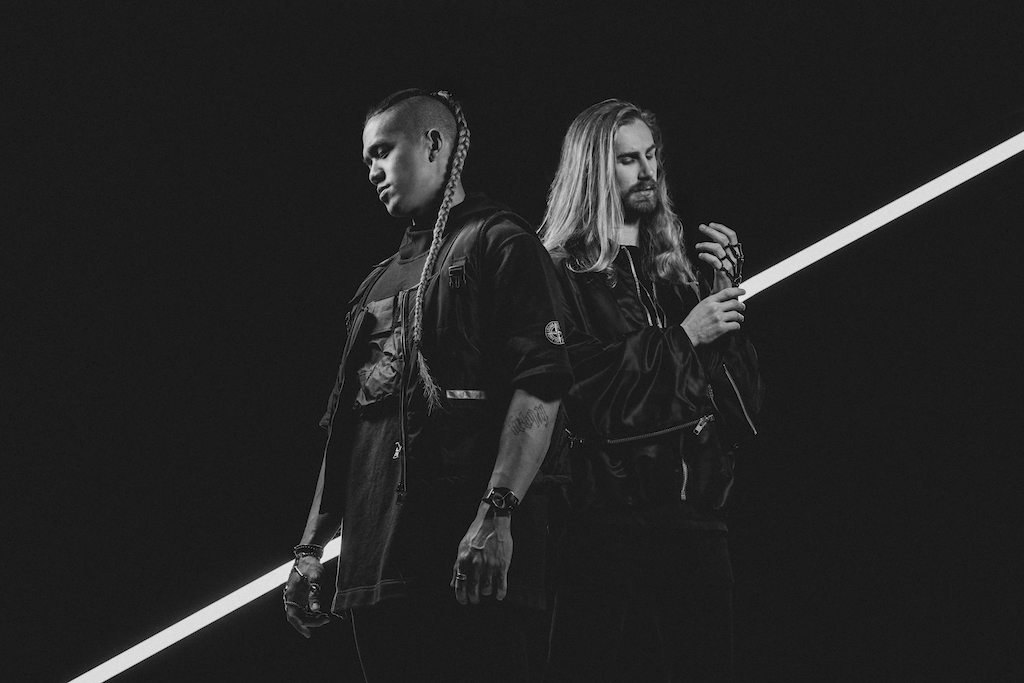
Some of your tracks like “Daggers” and “Hide and Seek” have lyrics that bring more literal meaning alongside the melody. When writing these kinds of songs, do the lyrics come first or the instrumental?
MORGAN: We work really closely with our writers when comes to writing and when it’s part of the writing process for songs like that. For Fletch and I, we’re really good at focusing on instrumentals, that’s our strength, and then when the lyrics come in with the songwriter, for example Claire Ridgely and Machine Age, we would then go online and chat with them and edit the lyrics along with them—but we leave that in their hands because that’s their domain. That’s their strength. We believe in that type of collaboration versus micromanaging everything in the songwriting process. If it’s not our strength, we will not play to it. We will play to our strengths.
So much of what makes electronic music unique is that the rhythm and the beat can carry a song through to the end without lyrics. Good examples of these would be “Horus” and “Hades.” How do you name tracks when there isn’t a specific lyric to draw on?
FLETCHER: It just kind of comes back to that mental image that we have. However we could imagine the track, whatever image we could imagine the track to go along to, then we’ll name it something to do with that. We kind of accidentally stumbled onto it, but we really like this theme of mythological god names. So we have Hades, Athena, Helios, Ra, Horus… we actually have some new ones coming with some artists. We’re going into other realms. Keep an eye out for that!
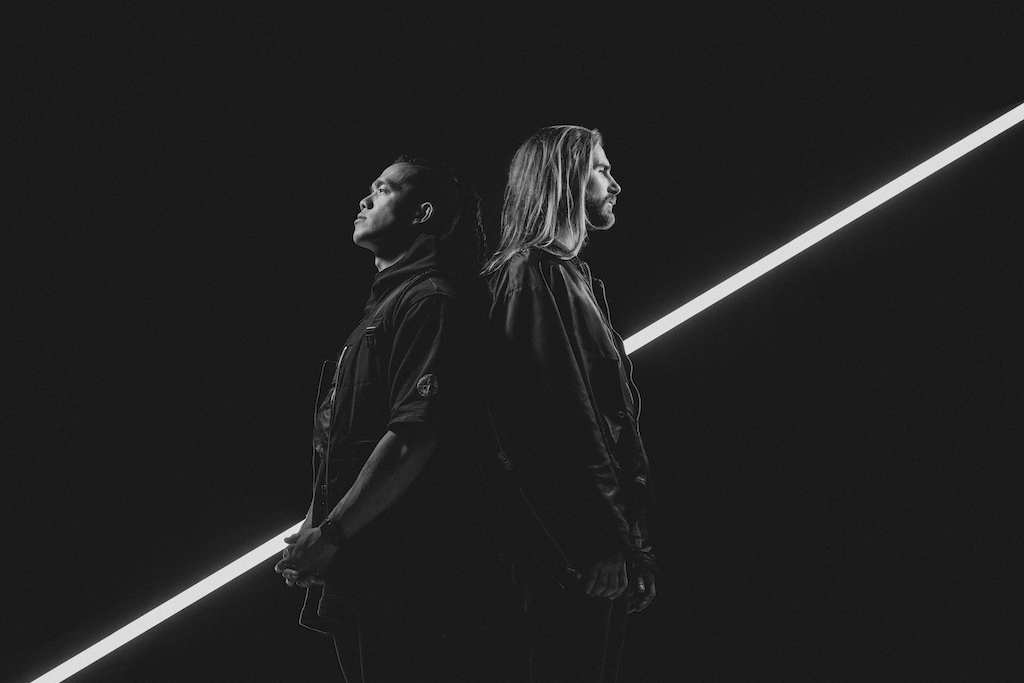
On February 21st, you released your latest EP, Black & Blue!
Your EP from last year, SARAWAK, was inspired by the sights and sounds you experienced in Sarawak, Malaysia. Now, Black & Blue will be your fourth EP. What stood out to you about the production process for Black & Blue (and how did it differ from SARAWAK)?
MORGAN: I think ‘Black & Blue’ definitely feels a little bit more urban for Fletcher and myself. ‘SARAWAK’ was sort of like the whole campaign and the whole EP was a whole experience, but ‘Black & Blue’ was sort of like a distillation of where we are right now, you know, in L.A. and the writing process isn’t as vast, but we wanted to take it more lightly. We usually put music out so slowly, and I think ‘Black & Blue’ is like a start of a new era for us, where we just sort of not have to be such perfectionists and put out songs as we go along. I think that’s basically how ‘Black & Blue’ would define 2020 for us.
FLETCHER: I think ‘Black & Blue’ is really the first “L.A.” EP, isn’t it Morgs? Everything on ‘Black & Blue’ came from something to do with L.A.: friends in L.A., producers who we met in L.A. – a lot of it’s from friends in L.A., and then “NORF” came through grinding, trying to get that precise sound to make the drop really pump. That’s kind of where “NORF” came from. So this is the first EP where everything came out of this really urban gritty L.A. type of environment.
Talk a bit about the theme for Black & Blue. What is the feeling, mood, or greater idea you want to communicate through your latest EP?
MORGAN: That’s a tough one. We hardly sort of go with the cohesion philosophy when it comes to writing music. I know a lot of people would use that, but Fletcher and myself prefer letting our creative juices flow and whatever comes to the table is the song for that EP. We sort of disagree with the whole idea that that doesn’t sound like SLUMBERJACK or this doesn’t sound like Skrillex or that doesn’t sound like Diplo for example. Whatever we put out is a SLUMBERJACK song, so you might listen to “Black & Blue” as a single and think that that’s a very different pop direction versus “Hades” but we’ll still put them in an EP because that defines an era for us. We wrote all these songs in one session or a period of time and this is the story we want to tell. There isn’t really a story, it’s more of a mental snapshot of our brain at the time.
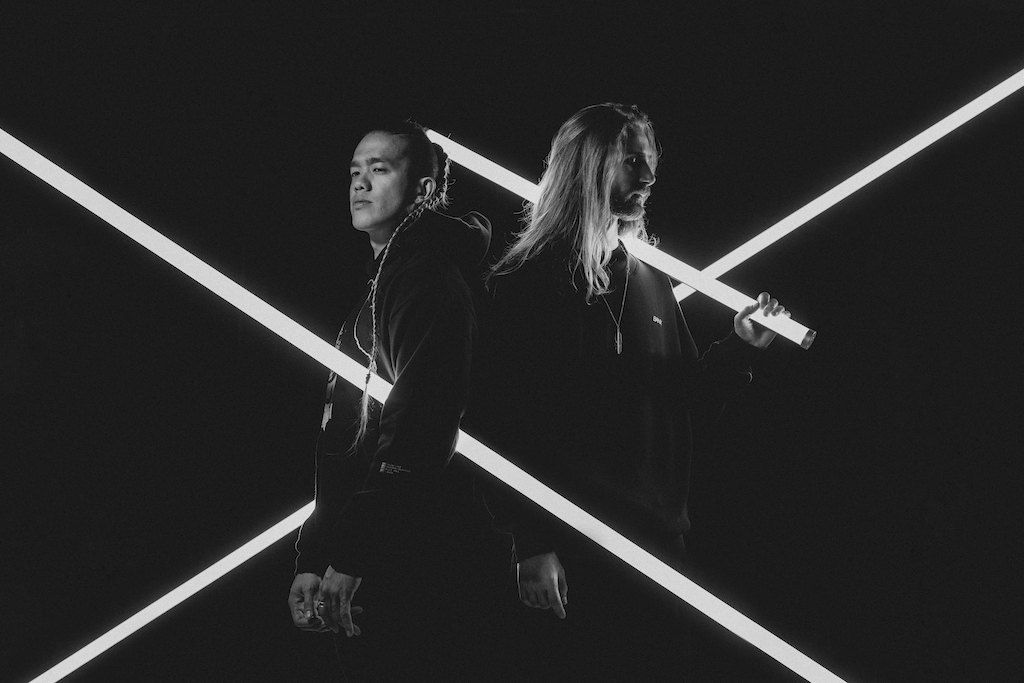
When comparing tracks like “Crucified” that have a lyrical element to others like “Hades” which lean on the music rather than spoken language for meaning, do you ever feel restricted when working with or without lyrics?
FLETCHER: I think lyrics can be a little bit of a “cheat.” If you have a really great vocalist come to the project, they carry a lot of the weight of the music because a lot of people tend, their ears, go to the lyrics and the melody of the vocal and that’s kind of the memorable thing. When you’re working on an instrumental track, I think we really have to step up to the challenge and make it really interesting and engaging without having that really familiar sound of the human voice to carry people’s interest in the track. So I think instrumentals are a lot more difficult for us to write because so much more has to go into it.
MORGAN: Yeah, it’s definitely a cheat. It’s an out. I feel like it’s an easy out. Having a good songwriter in the room is an easy out.
You worked with a number of different artists in this EP, including Cory Enemy, Daktyl, MOONZz, Mothica, and, of course, FOMO. What was it like collaborating with them?
MORGAN: They’re all different. It’s a really cool learning process working with these guys. Like the FOMO guys? I think Fletch and I would agree that they’re our new favourite young gun producers where they’re like kings of drops. Literally, the stuff we struggle with, it’s just BOOM here’s a drop! With Cory, the guy is just a genius with songwriting. He can tell a long story in a very short form. He’s very quick and precise with his songwriting. Daktyl—actually Fletch, he started working on “Crucified” with Daktyl in the beginning, and this guy is just like an instrumentalist prodigy… guy’s like this mad scientist! It’s all very special working with these people.
FLETCHER: And then of course Mothica and MOONZz, the vocalists on the tracks, are both incredibly different vocalists, talented in their own way, and we’ve been in touch with both of them for many years and always wanted to do something with them. When we had our first touring out in the States, we sort of got in touch with these guys and we’re glad to finally be able to put something out after, what, three, three-and-a-half years of being in touch?
MORGAN: It’s a long time coming—actually this EP is a long time coming, if you think about the relationship we’ve created and developed before ‘Black & Blue.’
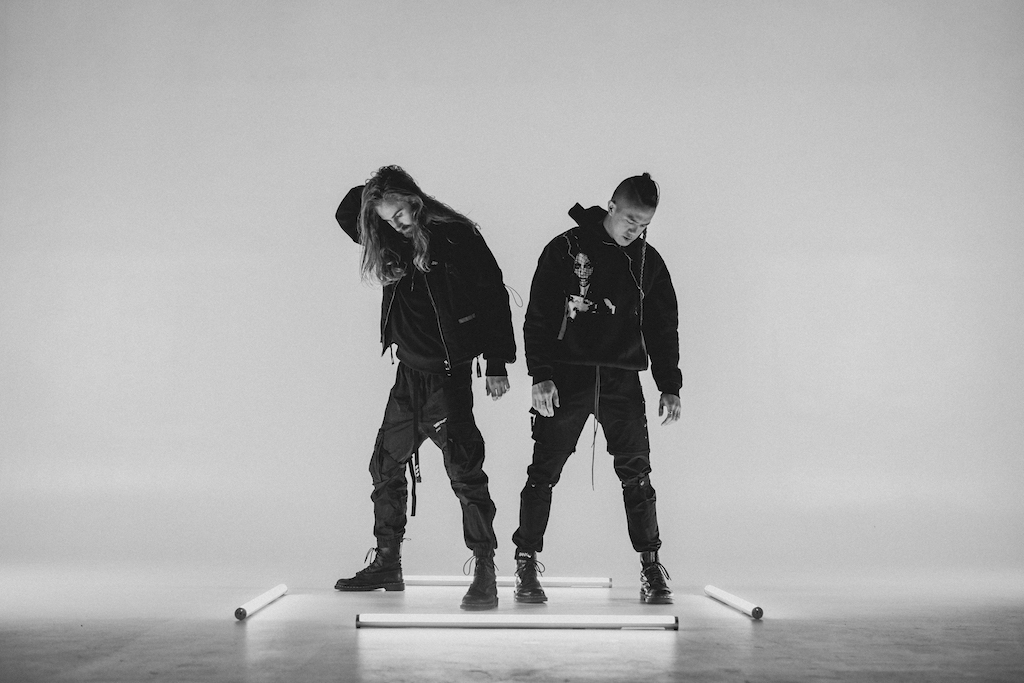
How long has Black & Blue been in the works?
MORGAN: The “Black & Blue” single, I would say three years.
FLETCHER: Slowly, slowly. Not the whole time. It’s just gone through many different stages and revisions, which is very classic of us. [...] We’d revisit it every couple of months. Every couple of months, we’d go back to it, tweak it a bit, catch up with Cory, have a session on it, and then, finally, we felt like this was the time to release it… which is very classic of us to do that for one track. But the rest of the tracks came together very quickly, or comparatively. “NORF,” “Crucified.”
MORGAN: Well, actually, “NORF” is the one that took the most effort. Fletch, where did we come up with the idea? [...] It was in Orlando. Fletch came up with the idea in Orlando. That was like the beginning of 2018? And, ever since that, it took a year of just slow build, and then, for the last six months before the release, it was just us grinding literally every day on “NORF.” If you look at our Splice version, I think that’s like version 271. It’s constant, just nailing it. Like what Fletch said, technicality aside, delve deep into forms just to nail that sound. That one killed me!
What would you say is the average time it will take you to make a song?
MORGAN: One year?
FLETCHER: Yeah, six months to a year. But that’s not working on it all day, every day. It takes that time to gesture, you work on other stuff, you get an idea, you go back to it…
MORGAN: It’s important to leave the song alone, too. Like we would write it and forget about it, because then it would refresh our brains.
FLETCHER: I don’t think we’ve ever started a track and put it out in a time shorter than one year… unless it’s a collab.
MORGAN: Except for “Touched.” That was like four hours.
FLETCHER: Yeah, but that was four years ago, five years ago. Times be different!
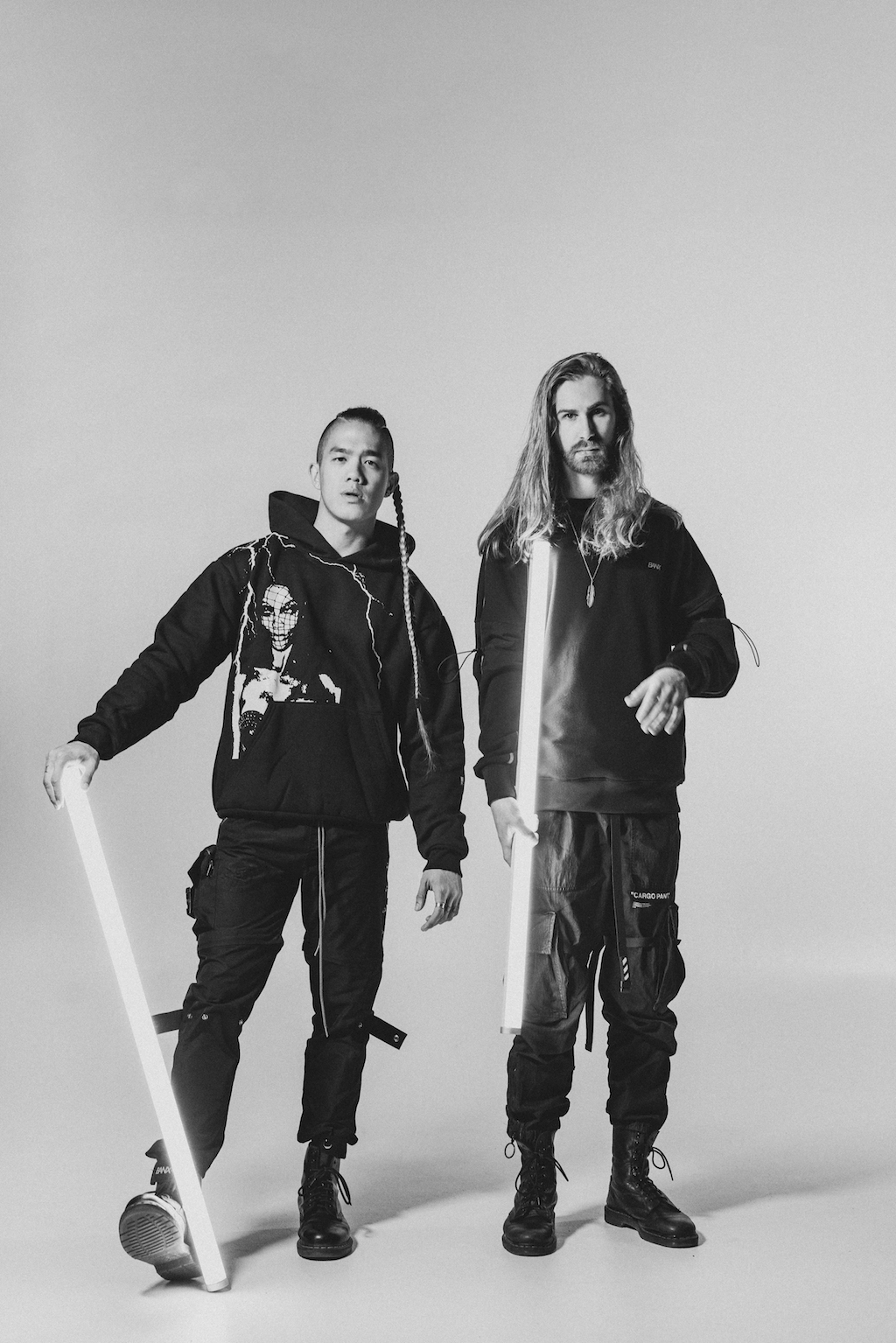
You two have been producing music as SLUMBERJACK for almost six years now! What is something you notice about the industry today that is completely different from when you started?
MORGAN: It’s like Soundcloud versus Spotify, right? I think it’s a lot more grassroots underground back five, six years ago. Now, it’s a lot more about Spotify playlisting… which is fine by us, but I like the idea of being able to not just go on Reddit but go on Soundcloud and see the comments of what the people think about your song. It feels more connected to the fans, but, now, I think our only avenue of connection to the crowd is Twitter and Instagram. That’s pretty much our only medium of communication, right Fletch? Soundcloud just feels a lot more… I don’t know! It feels like we’re all hanging out having a house party, like a listening party. And Spotify’s a little bit more of like a grand album launch. Have some tapas and here’s some champagne and here’s Spotify!
FLETCHER: I’ll just add, I think everybody has really upped their game in production now compared to back then. I mean, last night I was listening to ‘DIMEBAG’ by [Mr.] Carmack and there are some insane records on that. When it came out in 2014, they were so, so ahead of their time and the production was amazing, and, listening to it now, you can really tell how music’s changed. That sound is now so ubiquitous. It seems like, if that record was to come out now, I’d be like you’re just copying what everyone’s doing. But you’ve gotta remember that was the first of its kind. He was one of the first guys to really pioneer that sound, but I’m just impressed, nowadays, that there’s so many kids who can actually emulate that sound and do that now because of technology becoming more accessible and quality samples out there on Splice and these types of platforms.
You guys are off to a hot start here in 2020! What does your outlook look like for the rest of the year?
MORGAN: Tons of music and tons of touring!
FLETCHER: Up, up, up the music release this year! I think I realized the other day, in the first two months of this year, we’re going to be releasing more music than we released the whole of last year and we just want to keep it going at that rate. We’re sitting on so much great stuff and, honestly, we’ve been too precious about it and we need to just get it out there, let people listen to it, and move on!
Morgan and Fletcher are opening the floodgates on all the projects they’ve been working on!
When it comes to pure skill and ability, few come close to SLUMBERJACK. The time they spend tuning all the little things in each track is both awe-inspiring and indicative of their dedication to crafting works of unmatched quality. Hearing that they have been sitting on projects—including more ancient mythology-inspired tracks—that are just about ready to drop? Well, that’s just the cherry on top!
We’d love to give a huge shoutout to SLUMBERJACK and their team for making today possible. If you haven’t already, make sure to give them a follow on Te’d lo e’d Ie’d love!e’d love to give a huge shoutout to SLUMBERJACK and their team for making today possible. If
